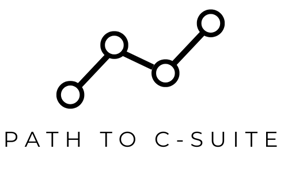Tips to Find Your Path to a C-Suite Job
2/8/20254 min read


Understanding the C-Suite Landscape
The C-suite, often referred to as the executive suite, consists of the highest-ranking executives within an organization, known for their critical decision-making roles that guide the overall direction of the company. Key positions include the Chief Executive Officer (CEO), Chief Financial Officer (CFO), Chief Operating Officer (COO), Chief Marketing Officer (CMO), and several others, each playing a vital role in different aspects of the business. The CEO leads the organization, setting strategic goals and ensuring the company operates effectively towards those objectives. The CFO manages financial strategy and oversight, while the COO focuses on the day-to-day operations, ensuring efficiency and productivity.
To transition into these distinguished roles, professionals typically need a blend of advanced education, significant industry experience, and demonstrated leadership capabilities. A Master’s degree, such as an MBA, is often preferred, as it equips candidates with essential knowledge in management, finance, and business operations. Relevant experience is also critical; aspiring C-suite candidates might start in managerial roles or specialized positions, gradually building their skills and networks. Leadership experience, particularly in high-stakes environments, is crucial as executives must navigate challenges effectively and motivate their teams to fulfill corporate goals.
Moreover, emerging trends in executive hiring highlight the importance of adaptability and digital competence. As organizations increasingly embrace technology, candidates who possess digital literacy and are familiar with data-driven decision-making processes are often favored. Additionally, companies are placing emphasis on diversity and inclusion in their leadership teams, paving the way for a broader range of backgrounds and perspectives within the C-suite. Understanding these dynamics can equip candidates with the insights needed to tailor their pathways to achieving their desired executive position.
Investing in Education and Professional Development
For aspiring C-suite executives, investing in education and continuous professional development is paramount. As the business landscape evolves, the need for advanced knowledge and skills becomes more critical. An advanced degree, such as a Master of Business Administration (MBA), can significantly enhance one’s qualifications, providing a competitive edge in the job market. Specialized programs not only offer theoretical knowledge but also practical applications that prepare executives for real-world challenges.
Alongside traditional degrees, obtaining industry-specific certifications can bolster an individual's expertise in a particular domain. These certifications signal to employers a commitment to maintaining current industry standards and best practices. They also demonstrate proficiency in niche areas that may be necessary for C-level roles. For example, certifications in project management or financial analysis can be especially advantageous for aspirants targeting positions such as Chief Operating Officer or Chief Financial Officer.
Moreover, participation in leadership workshops and strategic management courses can significantly impact one's professional growth. These programs are designed to refine essential skills, including decision-making, team leadership, and strategic planning, which are crucial for high-level executives. Engaging in networking through these activities provides further opportunities for mentorship and connection with other professionals who are already in the C-suite, augmenting one’s career trajectory.
When selecting educational programs, it is essential to consider personal career goals and alignment with current industry demands. Conducting thorough research, seeking recommendations, and evaluating program outcomes will enable prospective candidates to choose the right path for their academic and professional journey. Ultimately, a strategic investment in education and continuous learning lays the foundation for aspiring leaders to successfully transition into C-suite positions.
The Power of Coaching and Mentorship
In the pursuit of a C-suite position, the role of coaching and mentorship cannot be overstated. Aspiring executives can significantly benefit from the guidance and support of mentors who have successfully navigated their way through the complexities of corporate hierarchies. Finding a mentor who has experience in executive roles offers invaluable insights into the skills, strategies, and mindsets necessary to ascend to leadership positions. Such relationships can provide a framework for personal and professional growth, enabling mentees to refine their leadership skills and enhance their strategic thinking capabilities.
Coaching focuses on individualized development, often requiring a more structured approach than mentorship. A personal coach provides targeted feedback, accountability, and tailored strategies designed to cultivate self-awareness and improve decision-making skills. The iterative process of working with a coach empowers individuals to identify their strengths and areas for improvement, thereby accelerating their readiness for C-suite responsibilities.
To establish meaningful mentorships, professionals should begin by identifying potential mentors within their networks or industries. Engaging with individuals who have attained executive roles and demonstrating genuine curiosity about their experiences can lay the groundwork for a fruitful relationship. When initiating these connections, it is critical to approach with respect and an understanding of their time constraints while clearly articulating one’s goals and aspirations.
Additionally, mentees must actively engage in conversations, seeking feedback and asking pertinent questions to gain insights. The willingness to embrace constructive criticism facilitates growth and fosters a productive mentor-mentee dynamic. Making the most of this relationship requires commitment and accountability, ensuring that both parties remain engaged in the development process. By leveraging the power of coaching and mentorship, aspiring executives can navigate their trajectories toward C-suite roles with confidence and clarity.
Building a Robust Network and Personal Brand
In today's competitive job market, particularly for C-suite positions, cultivating a robust professional network and a strong personal brand is paramount. Networking refers not only to the act of making connections but also to nurturing these relationships to create opportunities. Attend industry conferences, seminars, and local events where you can meet peers, mentors, and leaders within your sector. Make it a point to engage with individuals who are not just in your immediate field but also those in adjacent industries. This diversity can provide unique perspectives and open doors to opportunities that may not be readily apparent within a narrow network.
Furthermore, leveraging online platforms like LinkedIn is crucial. An active and well-maintained profile can help you connect with thought leaders and peers who can amplify your reach within the industry. Share articles, insights, and participate in relevant discussions to position yourself as an informed professional. By engaging regularly on these platforms, you can enhance your visibility and credibility, showcasing your expertise to a wider audience—an essential element of your personal brand.
Building a personal brand requires clarity about how you want to be perceived professionally. Define your core competencies and values, then express these consistently across all forums, online and offline. Engage in thought leadership activities such as writing meaningful articles or speaking at events to exhibit your expertise and insights. In addition, do not hesitate to reach out to connections for informational interviews or advice about industry trends and job openings. These not only build relationships but also provide you valuable knowledge that can aid in your job search. In conclusion, a strong network combined with a well-crafted personal brand significantly increases your chances of securing a coveted C-suite position.
Contact & About
Newsletter
© 2025. All rights reserved.
Legal
About Us


